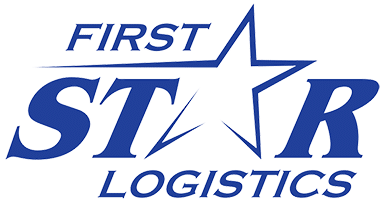When shipping freight, it is helpful to anticipate the job’s total price accurately. The fees connected to shipping and receiving are a significant portion of the bill, but additional line items can accumulate and even increase the overall cost substantially. These other line items are often described as freight accessories charges. In this guide, we answer the question, “What are accessorial charges?” We also detail the most common accessorial charges and explain how to avoid them.
What are accessorial charges?
Accessorial charges are the fees added to a freight bill to cover the individual services a carrier provides to the shipper on top of the shipping itself. Accessorial charges are typically special services offered as needed and added to the bill at the end of the job, making it difficult to anticipate the total cost of a shipment in advance. To better plan for shipping costs, it is helpful to understand a carrier’s quoting practice and the common accessorial services that arise throughout a shipment.
15 Common Accessorial Charges
- Fuel Surcharge – A fuel surcharge is typically applied to account for fluctuations in fuel price, and the surcharge rate depends upon the current fuel rate. For example, if the fuel costs between $3.655 and $3.660, the fuel surcharge would be $0.05.
- Sorting and Segregating Orders – Carriers do not typically handle the freight. If a situation arises in which the carrier must sort or segregate parts of the cargo, the carrier will charge for these services.
- Hazardous Materials – The Department of Transportation (DOT) requires that hazardous materials are documented and handled in a particular manner. Carriers must gain specific certification to handle dangerous materials, and numerous additional steps must be taken when hauling this type of freight. Carriers will add accessorial charges to cover the additional tasks, responsibilities, and risks.
- After-Hour Delivery – When carriers must deliver freight after business hours, they may face additional challenges, like finding who to speak with and gaining access to the delivery location. Accessorial charges are added for after-hours deliveries to account for the hurdles carriers have to navigate under these circumstances.
- Cancellation Fee – Carriers all have cancellation policies. Usually, there is a specific window of time and terms in which a shipper can cancel a job without penalty. However, a cancellation fee is incurred if a shipper cancels outside of the window or terms.
- Advanced Notification – When a carrier needs to notify a recipient before the delivery, a fee is charged for that communication service.
- Redelivery – A carrier may be forced to redelivery the goods for several reasons, such as the receiver rejecting the shipment, the necessary equipment not being on-site to complete the delivery, or no one being available to receive the order. These circumstances, and many others, force drivers to redo a significant portion of the job and potentially lose out on other businesses. Redelivery fees are among the most expensive accessorial charges.
- Layover – If a truck cannot load or unload during the established delivery time, the carrier will charge a layover fee to compensate for the delay.
- Diversion Miles – If a carrier arrives at the shipper or receiver location and is told to go to another address, the carrier will commonly charge for diversion miles.
- Detention – If a carrier is delayed by a shipper or receiver beyond the detention time allowed in the contract, the carrier will charge a fee to account for the time and inconvenience.
- Limited Access – Facilities with limited access raise the driver to jump through hoops to complete the job. The driver will charge an accessorial fee to account for the time and hassle limited access creates.
- Residential Delivery – Delivery to a residential location differs greatly from commercial delivery. It usually takes extra time and careful maneuvering, and carriers charge an accessorial fee for these extended services.
- Metro Pickup and Delivery – Pickup and delivery in a metro location differ greatly from a rural or suburban location. Drivers must navigate traffic, parking limitations, and other navigational challenges that must be accounted for as accessorial fees.
- Driver Loading and Unloading – Truck loading and unloading is outside of the standard carrier services. If a driver has to provide these additional services, they will appear as additional charges.
- Inside Delivery – Delivering goods to an indoor location is a “white glove” service that typically requires special equipment, trained handlers, and additional time. These services will be reflected as accessorial charges.
How to Avoid Accessorial Charges
Many of the accessorial charges listed above cannot. For instance, if your pickup or delivery location is in a major city, there is likely no way around the metro surcharges, and no one can avoid the fuel surcharges because there are always fluctuations in the diesel price. But some accessorial charges can be avoided, and most importantly, there are ways to avoid being surprised by accessorial charges altogether. After all, no one likes to receive a higher-than-expected bill. Here are our recommendations for avoiding unnecessary accessorial charges and reducing the likelihood of a surprise on the bill.
Know the Terms
The first and perhaps most important rule of thumb is to know what to expect. Determine the possible fees and the conditions of the shipment in advance. For example, be clear on the carrier’s terms, services, and policies to avoid being surprised by late cancellations or special service fees.
Plan Ahead
Another essential strategy is to plan. Ensure everything is for the shipment to make the carrier’s job as straightforward as possible. For example, prepare the shipment in advance so the carrier does not have to sort or segregate the goods.
Communicate
Communication is almost always the key to success. Talk with your carrier about potential issues and take proactive steps to address them. If this sounds challenging or intimidating, consider working with a freight broker who can communicate and coordinate on your behalf.
Partner with a Trusted Logistics Provider
Another great way to avoid unexpected expenses is to work with a trusted logistics partner who will work with you to create optimal hauls and avoid surprise costs. First Star Logistics is a unique asset-based global brokerage company with over 60 years of experience. We take great pride in meeting the needs of our customers, carriers, brokers, and agents. For our customers, we understand that efficiency, safety, and reliability are crucial. We use fast, cutting-edge technology to ensure a satisfactory experience with our specialized shipping services.
To work with First Star Logistics, contact us today!



